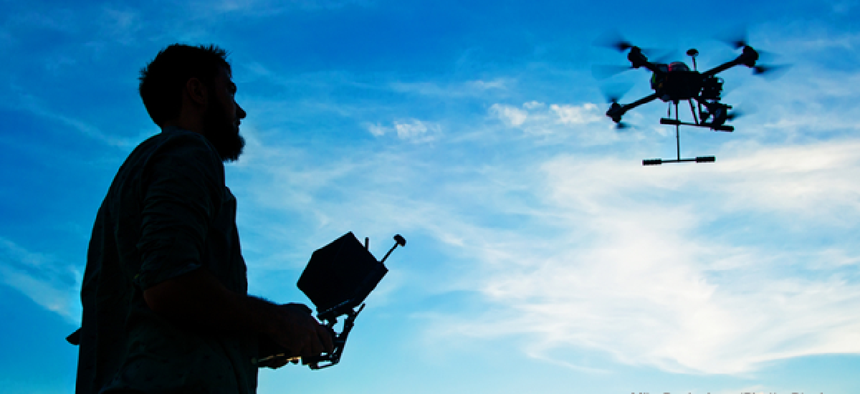FAA task force delivers recommendations on drone registry


Connecting state and local government leaders
The FAA task force established to make recommendations regarding a registry for small unmanned aerial vehicles delivered its final report.
Regulators have released long-awaited recommendations for small drones that will require registration for all but the very smallest devices.
The Federal Aviation Administration’s Unmanned Aircraft Systems Registration Task Force Aviation Rulemaking Committee determined that aircraft weighing less than 250 grams (.55 pounds) do not need to be registered.
Users operating devices between 250 grams and 55 pounds, on the other hand, must register. To ease the registration burden for individuals with multiple aircraft, the task force recommended that users register one time only, regardless of the number of aircraft they own or operate. (Drones larger that 55 pounds cannot be operated without a license.)
The size threshold means virtually all UAS hobbyists will be required to register. “At a little over a half-pound, this will sweep up all but the smallest toys,” Mark McKinnon noted on the blog “Plane-ly Spoken,” which is associated with the global law firm Denton that works in the aviation and unmanned aircraft sector.
The FAA formed the task force of public and private stakeholders to address increasingly common close encounters between large aircraft and small, privately owned drone aircraft. According to the report, the goal of the registry is to increase “accountability by creating a traceable link between aircraft and owner, and to encourage the maximum levels of regulatory compliance by making the registration process as simple as possible.”
In terms of the registry itself, the task force report stated the system would be powered by an application programming interface that allows multiple app clients to feed registration information into a database. Users will have to enter their name and street address while mailing address, email address, telephone number and serial number of the drone will be optional. The API will allow manufacturers or trade organizations to develop applications that can register customers or members by submitting information directly to the FAA database on their behalf.
After registration, a drone owner would receive a certificate that contains a unique universal registration number to be used on all small UAS owned by the individual prior to outdoor operation.
The task force also recommended that the small drone registration process include an educational component. This content could be similar to the “Know Before You Fly” campaign, which provides users with information and guidance on safe drone operation. The FAA also recently pushed a mobile application called B4UFly, which, in addition to complementing the Know Before You Fly campaign, provides information about restrictions or requirements in effect at users’ current or planned flight locations.
“This collaborative effort is an important step toward developing an efficient process for UAS registration that should lead to increased accountability across the entire aviation community,” Brian Wynne, president and CEO of the Association of Unmanned Vehicle Systems International said in a blog.
The FAA can take all or none of the task force recommendations, but Transportation Secretary Anthony Foxx has said the proposed registration portal will up and running before Christmas.
Read the full report here.




